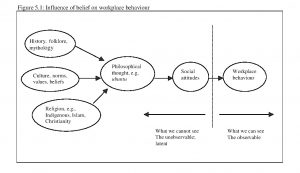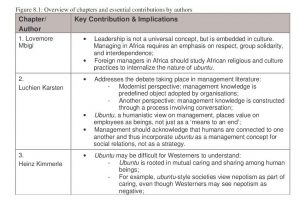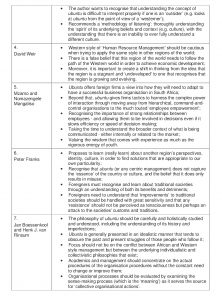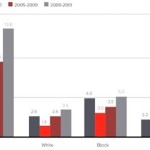Prophecies And Protests ~ Ubuntu And Communalism In African Philosophy And Art
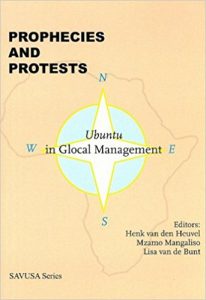 During my efforts to set up dialogues between Western and African philosophies, I have singled out quite a number of subjects on which such dialogues are useful and necessary. Recently I have stated in an essay that three themes in the African way of thought have become especially important for me:
During my efforts to set up dialogues between Western and African philosophies, I have singled out quite a number of subjects on which such dialogues are useful and necessary. Recently I have stated in an essay that three themes in the African way of thought have become especially important for me:
1.1 The basic concept of vital force, differing from the basic concept of being, which is prevalent in Western philosophy;
1.2. The prevailing role of the community, differing from the predominantly individualistic thinking in the West;
1.3. The belief in spirits, differing from the scientific and rationalistic way of thought, which is prevalent in Western philosophy (Kimmerle 2001: 5).
In these fields of philosophical thought there are contributions from African philosophers, which differ in a very characteristic way from Western thinking. Therefore in a dialogue on these themes a special enrichment of Western philosophy is possible. In the following text I want to clarify this possibility by concentrating on two notions, which have a specific meaning in the context of African philosophy. To discuss the notions of ubuntu and communalism means working out some important aspects of the second theme. The community spirit in African theory and practice is philosophically concentrated in notions such as ubuntu and communalism. But the concept of vital force, which is mentioned in the first theme, will play a certain role, too. We find the stem –ntu, which expresses the concept of vital force in many Bantu-languages, also in ubu–ntu. For a more detailed explanation of ubuntu, I will depend mainly on Mogobe B. Ramose’s book, which gives the most comprehensive explanation of the philosophical impact of this notion (Ramose 1999). The concept of communalism is explained in the context of the political philosophy of Leopold S. Senghor and other political leaders of African countries in the struggle for independence (Senghor 1964). A vehement critic of that theory is a Kenyan political scientist, V.G. Simiyu (Simiyu 1987). For a philosophical evaluation of this controversy I will refer to the articles and books of Maurice Tschiamalenga Ntumba, Joseph M. Nyasani, and Kwame Gyekye, dealing with the relation between person and community (Ntumba 1985 and 1988; Nyasani 1989; Gyekye 1989 and 1997).
Prophecies And Protests ~ The Scope For Arab And Islamic Influences On An Emerging ‘Afrocentric Management’
 Abstract
Abstract
As there is in the global world of management a diversity of cultures and differing norms of behaviour so there is more than one ‘culture of management’: yet little attention has been paid to the ethical and philosophical bases of other paradigms than those with which we in Western business schools are familiar.
Where other philosophical and ethical systems are encountered, they are apt to be dismissed with the discourse of ‘traditionalism’ or ‘underdevelopment’, or stigmatized as inconsistent with the requirements of business efficiency. Many of these systems of ethics are embodied in cultural traditions that are, in origin, older than those of Western capitalism, yet in contemporary societies these may be evolving and transmuting radically, so it may be incorrect and unhelpful to see these economic systems as deviant cases or as unsuccessful attempts to reproduce Western modalities.
This paper draws on extensive research by the author and colleagues in the contemporary Arab world to identify the values under-pinning management in the Near East, Middle East and North Africa, and to analyze the opportunities for corresponding styles of leadership and management in certain regions of Africa. We suggest that these Islamic values may exert a growing influence on the emerging ‘Afro centric’ models in the Twenty-first century.
It is not claimed that these models of management are especially relevant for African conditions, but they may be and that is for scholars and business-people more familiar with Africa to determine. But it is to argue that they should be more widely understood and studied as a counter-weight to the pervading emphasis on the hegemonic models derived from the historically-specific legacies of the western and colonialist worlds.
In the first section we review the background to management in the region, in the second we review relevant research frameworks and findings, in the third section we focus on the defining elements of Islam as this relates to business, then we examine the impact of modernity and in the final section we discuss some future trends of especial import for emerging paradigms of management in Africa.
The Middle World
A well-known saying among the Bedouin of the Middle East goes as follows: ‘It is written: the path to power leads through the palace, the road to riches lies through the market, but the track to wisdom goes through the desert’. In the West and especially in business schools we tend to assume that we have the best maps to all of these three routes, and that they lead to places we already know about. So the paradigms of management on which we base our instruction in these academies are those with which we are already familiar. But we may be wrong in these assumptions for in fact we know very little about the Arab and Islamic worlds and their special ways of managing and their different approaches to money and wealth (Weir 1998). We also know rather little about ‘African’ styles and patterns of management; though hopefully this book will do something to redress that balance. Nonetheless what counts as ‘management’ in most of the pedagogic and research literature with which we are in principle familiar is in fact derived from what we know about Western management and business and from what we have learned about our varied attempts to introduce those models into other contexts. Thus we tend to problematise the issues that arise from these ventures at intellectual colonisation and to hold the Western models as ‘normal’. Read more
Prophecies And Protests ~ Unleashing The Synergistic Effects Of Ubuntu: Observations From South Africa
 Abstract
Abstract
This paper argues that for the full economic revitalization of South Africa to take place, a critical step is to engage the synergistic effects of ubuntu or ‘humanness’, a philosophy which informs the thinking of a majority of South Africans. Ubuntu acknowledges that people are not just rational beings but that they are also social beings who possess emotions such as anxiety, hope, fear, anger, excitement and remorse. The position taken here is that openly recognising these human dimensions and accommodating them in everyday practice can unleash the synergistic effects of ubuntu. The paper gives examples of situations in which ubuntu manifests itself in the workplace, and provides lessons that can be learned from those situations. Among the advantages that can arise from harnessing the advantages of ubuntu are improvements in the corporate goals of employee satisfaction, productivity improvement, workplace harmony and, ultimately, the development of a vibrant economy that will further enhance the global competitiveness of the country.
Introduction
The dismantling of apartheid over a decade ago was a watershed event in the history of South Africa. The world watched as the country charted its course toward the establishment of a democratic, non-racial, non-sexist, system of government. With the democratic processes now firmly in place in the political arena, the spotlight has shifted to the economic revitalization of the country. But, as this paper will argue, sustained economic revitalization will not be possible until due regard is paid to the voices and aspirations of those who had been locked out of the democratic process for centuries. An important step in that direction is to understand the culture, values, norms and beliefs that predispose individuals to behave in certain ways. It is well known that individual behaviors and decisions are strongly influenced by prior socialization. Prior socialization itself is predicated on philosophical thought systems, which are strongly influenced by culture, norms, beliefs, history, folklore, and mythology; and religion (Hostede 1991; Roer-Strier and Rosenthal 2001; Thompson and Lufthans 1990). These relationships are shown schematically in Fig. 5.1.
The key to understanding the attitudes and behaviors of Africans in the workplace lies in learning about the philosophy of ubuntu. As a philosophical thought system, ubuntu shapes and informs the beliefs, values, and behaviors of a large majority of Africans in South Africa. Whether it is a critical issue that needs be interpreted or a problem that needs to be solved, ubuntu is invariably invoked as a barometer for good versus bad, right versus wrong, just versus unjust. Ubuntu can be viewed as an essential frame of reference for understanding African culture in South Africa (Brack, Hill, Edwards, Grootboom and Lassiter 2003; Lufthans, Van Wyk and Walumbwa 2004). In this essay we use Clifford Geertz’s (1973) understanding of culture as the web of understandings humans have spun. To Geertz (1973: 89), culture is an historically transmitted ‘pattern of meanings embodied in symbols, a system of inherited conceptions expressed in symbolic forms by means of which [men] communicate, perpetuate, and develop their knowledge about and attitudes toward life’. We believe that culture is something that evolves over time in response to the conditions in which actors find themselves, whether social, economic, political, technological, ecological, and so on. This strongly implies that culture is not an abstraction, but a mutable social construction. The historical formation of culture thus becomes a source of primordial sentiments which are the ‘givens’ of a particular group because over time they carry a shared and understood meaning that is of absolute importance. As a component of culture, ubuntu evokes existential feelings akin to primordial sentiments (Shils 1957; Stewart 1987; Emminghaus, Kimmel and Stewart 1997). As will be seen in this chapter, these primordial sentiments provide reference points (respect, cooperation, solidarity, empathy, etc.) necessary for creating and maintaining stable identity and peaceful coexistence.[i] In this chapter we will give examples of situations in which ubuntu manifests itself in the workplace, and provide lessons that can be learned from those experiences. It will conclude by arguing that an understanding of ubuntu is the key to accomplishing the goals of employee satisfaction, productivity improvement, and ultimately workplace harmony.
Ubuntu
Over the centuries of their rule in South Africa, the colonial and later apartheid governments have perpetuated the fact that the African population of South Africa is composed of at least eleven ethnic groups, each with its own unique linguistic and characteristics and historic evolution. A superficial assessment of this incredible diversity would seem to preclude the identification of a common character among these ‘ethnic’ groups. But this would be overly naive, since it belies the underlying distinguishable pan-African character that binds African people, which is a product of its unique geographical, historical, cultural, and political experience (Sithole 1959; Antonio 2001). No other feature can more powerfully capture the essence of this pan-African character than ubuntu. The word ubuntu (botho) is a derivative from umuntu (in isiZulu), umntu (in isiXhosa) or motho (in Sotho), which means a person or a human being. The plural form in both isiZulu and isiXhosa is abantu or people. Literally, therefore, ubuntu means the state of being a person or human being. But when Africans use the term, it is associated with the kinder, gentler, and nobler qualities of human interaction. So for example, when someone performs an act of kindness, they are said to have ubuntu. Having ubuntu means being respectful, being generous and giving, preparing the extra plate of food just in case a stranger showed up, going the extra mile in helping those in need without expecting anything back from them. Loosely translated into English, ubuntu means humility or humaneness. As noted above, ubuntu runs deeper than that. It serves as the foundation for the basic African values that manifest themselves in the ways people think and behave toward each other and everyone else they encounter. It is lamentable that, until recently, these values have largely been ignored in the management discourse. For a long time the discussion of the concept of ubuntu has been limited to other fields in the social sciences such as theology (Sithole 1959; Setiloane 1986). It is only fairly recently that it found its way into the field of management (see See Khoza 1994; Senge, Kleiner, Roberts, Ross and Smith 1994; Makhudu 1993; Mangaliso 2001; Mbigi and Maree 1995; Prinsloo 2000). It is our contention that any effort to bolster economic vitality while, at the same time, creating a healthy work environment will necessarily have to begin with understanding and incorporating the fundamentals of ubuntu into management practices. The management practices referred to here include productivity improvement, leadership training, decision-making, and group dynamics. It is our hope that lessons from this paper will contribute toward a greater understanding of ubuntu, and thus provide useful knowledge for management practitioners and theorists with an interest in South Africa. The focus of the discussion in the paper will be on the various aspects of ubuntu as they relate to relationships to others, language, decision-making, attitude toward time, productivity and efficiency, leadership and age, and belief systems. These were selected since in the view of these authors they bring into stark relief the essential nature of ubuntu as described above. They will now be discussed in turn. Read more
Prophecies And Protests ~ Managing In A Rural Context: Notes From The Frontier
 In fact, my philosophy does not allow of the fiction which has been so cleverly devised by the professors of philosophy and has become indispensable to them, namely the fiction of a reason that knows, perceives, and apprehends immediately and absolutely. (Arthur Schopenhauer, The world as will and representation, 1844 (1966: xxvi)).
In fact, my philosophy does not allow of the fiction which has been so cleverly devised by the professors of philosophy and has become indispensable to them, namely the fiction of a reason that knows, perceives, and apprehends immediately and absolutely. (Arthur Schopenhauer, The world as will and representation, 1844 (1966: xxvi)).
Introduction
These notes from the frontier challenge management approaches at all levels, from the management of international relations to the management of an enterprise. Building on a growing literature which questions the so-called Eurocentric approach, this essay challenges the adequacy of political correctness in this furious debate, which has come to so dominate the globalisation thrust of the developed world. These notes from the frontier are presented from the particular frontier in which the author lives and works. To some extent it is a personal observation, but one grounded in research, scholarship and participant observation. The notes bring together a number of observations both of the particular frontier of the author as well as those in the USA, Canada, Europe, Asia, Mexico and elsewhere in Africa. It is a work in progress that attempts to reflect upon the dynamics that underlie the emerging crisis of cultural understanding and misunderstanding in order to find ways to ameliorate the inevitable conflicts if something does not change.
These notes attempt to draw a broad picture of a myriad of complex dynamics as well as ground these thoughts in the nitty-gritty of management in a rural context. It is clearly incomplete as such broad tapestries always are. It is broad, not for the sake of being grand, but because the view of the world from the tribal frontier is very different, and questions some of the widely held beliefs that may seem true from the centres of modernity or other particularities. That globalisation is the mobilization of elites worldwide is not in doubt; however, it faces a danger of losing touch with the feelings and thoughts of those on the ground. It is a dangerous game to play that is, perhaps, begetting a growing reaction to Eurocentrism in general. These notes talk to the issues involved with resolving this basic conflict of the 21st Century, perhaps, contributing to the search for the right questions. This chapter, therefore, roams from the global to the local, intertwining a number of threads, but from a perspective based in a frontier of globalisation.
The notes present the view from a particular context, the particular frontier between globalisation and tribalism in the northernmost province of South Africa, Limpopo Province. It reports the observations of a participant observer, an urban born white South African who has had the fortune to work and live on this frontier for the past 15 years, as well as travelling widely over that time. It also draws on research conducted on specific issues underlying management in this rural context, such as the issues of identity and migrancy as they impact both this rural particularity and other frontiers, including migrants to the so-called developed countries and their particularities worldwide.
This chapter is presented as a contribution to furthering the broader conversations concerning management on the frontiers of globalisation. The frontier is where globalisation and particularities interface, whether in a First or Third World context. More narrowly this contribution forms part of a conversation towards the development of a management style appropriate to the rural Southern African context, in which particularity the author is immersed. The notes contribute to the debate around Afrocentric management. It is somewhat of a heuristic montage attempting to bridge the gap between local and global perspectives and especially the perspective of the particularities vis-à-vis the forces of globalisation. In a sense these are notes from the frontier between modernity and tribality, in this particular case.[i] It is not a clash of civilizations as Huntington (1993) would have us believe; rather it is a clash of histories and trajectories, a clash of values on a myriad of fronts. One must be careful not to trivialize this complex dynamic between cultures and values to a good guy – bad guy scenario. Difference is a matter for respect and not for the cheap politics of maligning the other. The crux of the matter is that you cannot expect others’, cultures, societies and particularities, to accept the dominating culture in its entirety. Management at all levels needs to urgently acknowledge the ‘other’, the particularities’ right to self-determination. Read more
Prophecies And Protests ~ Eurocentric Versus Afrocentric Approaches: Management Thinking Beyond Dichotomies?
 Introduction
Introduction
In 2003 one of the authors of this article visited a historically disadvantaged university in South Africa where a colleague – a well known South African specialist on ubuntu – lectured in the Philosophy department at that time. The author gave a presentation on Genomics and Africa in one of the lecture rooms of the School of Molecular and Life Sciences of this university. On the wall outside the lecture hall there was a show case, containing a brochure of the school that stated:
Vision
The school of molecular and life sciences strives to be an internationally recognised afrocentric centre of excellence in biotechnology, arid zone studies, and related disciplines.
The author was struck by the use of the word ‘afrocentric’. Surely, molecular biology as such cannot be Afrocentric. Or can it? In Cell Biology International 2001, an article written by Barry Fabian was published. The title of his article was Cellular ubuntu: Umntu Ngumntu Ngabanye Abantu, and other problems for cell biologists in the new millennium. Fabian looked at the self-organisation of developing cells. He noted that the complexity of cells is not only related to the cell itself but also to the functional whole of cells leading to an ordered operating system. Fabian concluded: ‘To this end, cell and developmental biologists must continue to honour and explore the adage that “a cell only becomes a cell through other cells”’. So ‘molecular ubuntu’ in the metaphoric sense of the word is possible after all.
Afrocentricity is a concept that has gained popularity both in Africa and among African-Americans in North America. In this article we will first focus on the problems with regard to the definition of this concept. We will then argue that the popularity of the – loosely defined – concept is probably related to its metaphoric power, constructing an opposition to Eurocentric, and creating its own authenticity. We will try to demonstrate that this construction of opposition and authenticity, i.e. this construction of identity, can potentially mask other – possibly more relevant – dichotomies, notably the dichotomy between the rich and the poor.
Afrocentric: A definition problem
Trying to answer the question what afrocentric management is about, will undoubtedly induce problems of definition. Generally speaking, we find the term afrocentric difficult to handle because a clear and unambiguous definition of the concept seems to lack. Are we, for instance, talking about an African Afrocentrism or perhaps an African-American Afrocentrism, or are they both the same?
Afrocentricity is a concept that has a long history. It has been the subject of many discussions among African-American scholars in the United States for many years already. There is a wealth of literature related to this subject. One of its major advocates is the African-American scholar Molefi K. Asante. The Department of African American Studies of Temple University, where Asante has been working for many years, has been a leading place in spreading this concept. However, the concept of Afrocentricity has met with severe criticism from scholars, including Stephen Howe in his Afrocentrism: Mythical pasts and imagined homes (1999). Read more
Prophecies and Protests ~ Contextualising Ubuntu In The Glocal Management Discourse
 The book ‘Prophecies and Protests: Ubuntu in Glocal Management’ provides a wealth of information on the unique Africa-centered management style based on ubuntu. While it is a monograph about anagement in Africa, it stops short of making the bold claim that Africa-centered management could be wider applicable, for example, in the Western world. However, the book alerts Western companies working in Africa to pay attention to the practices of ubuntu in African companies and its effects on the workforce. Since by definition ubuntu is a human condition, its emphasis on the social interactions of humans as a source of strength and meaning, provides a unique perspective on how leaders can create powerful organisations. A brief overview of the chapter contributions is captured in Table 1 for ease of reference.
The book ‘Prophecies and Protests: Ubuntu in Glocal Management’ provides a wealth of information on the unique Africa-centered management style based on ubuntu. While it is a monograph about anagement in Africa, it stops short of making the bold claim that Africa-centered management could be wider applicable, for example, in the Western world. However, the book alerts Western companies working in Africa to pay attention to the practices of ubuntu in African companies and its effects on the workforce. Since by definition ubuntu is a human condition, its emphasis on the social interactions of humans as a source of strength and meaning, provides a unique perspective on how leaders can create powerful organisations. A brief overview of the chapter contributions is captured in Table 1 for ease of reference.
In essence, ubuntu accentuates the notions of humaneness, sharing, and respecting all by creating great value for a group above pure individual desires and actions (Mangaliso 1992; 2001). It is a self-reinforcing set of beliefs that revolves around the core concept that the strength of any group resides in the relationship of its members. Behind this core concept are beliefs such as:
1. People are not just rational, self-interested beings, but are social beings whose interactions have implications for both the group and individuals within the group;
2. Unity of the whole is more fundamental than the distinction of the parts. Individuals do not act not in theoretical isolation – there is a reciprocal impact experienced within a network of social relationships;
3. Relationships are more important than any given decision or outcome;
4. Inclusiveness in decision-making is more important than speed or efficiency;
5. The broader context is always important, and ‘context’ could be on many levels: overall culture, human dynamics in a meeting, or non-verbal cues in a conversation;
6. The wisdom that comes with experience as valuable as the vigorous energy of youth;
7. Group performance is more important than individual ‘stars’; Strong individual performers are those that help the group the most. Read more


